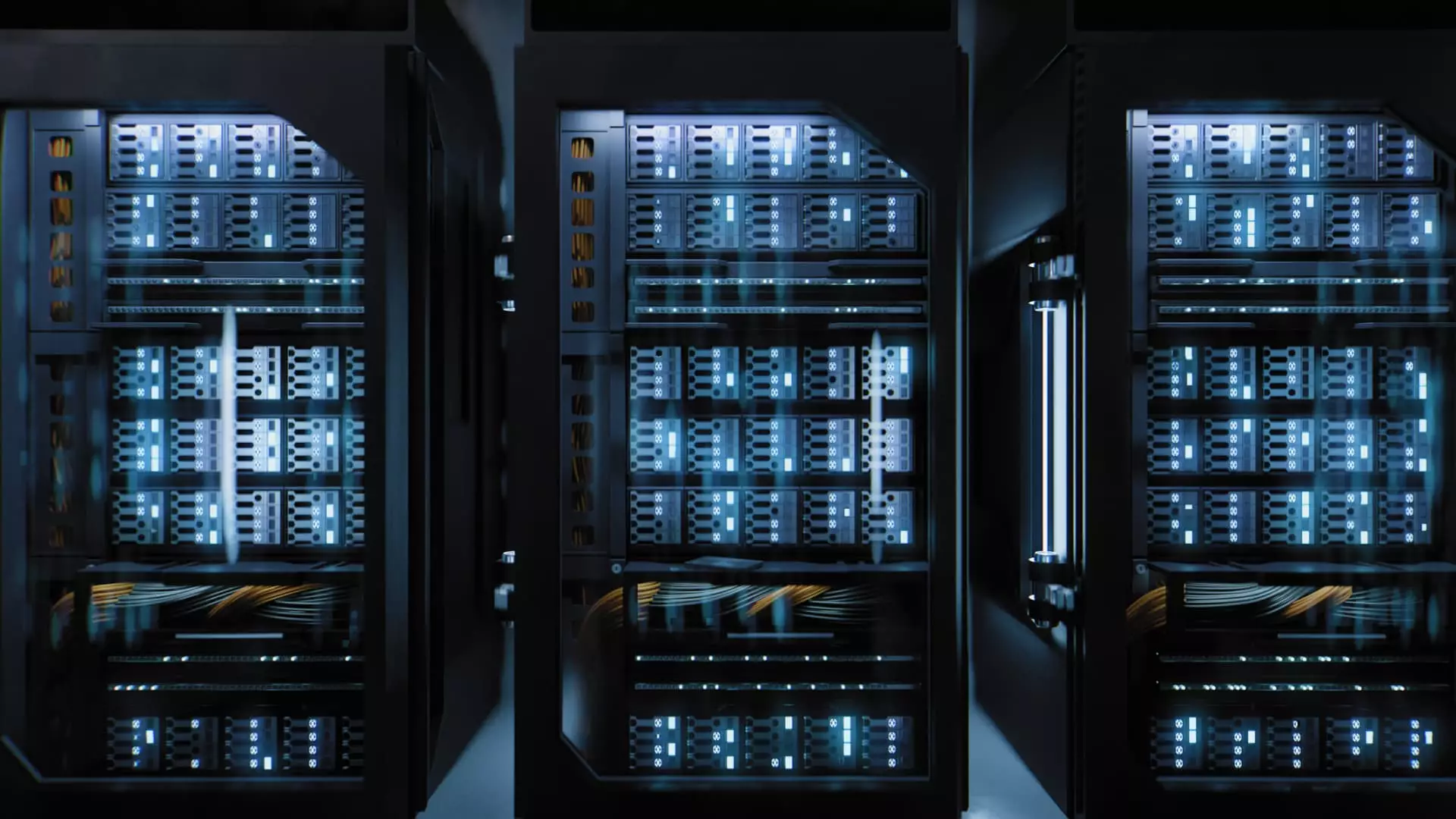The rise of artificial intelligence (AI) has created a paradigm shift within the realm of data centers, particularly in Europe, where balancing technological advancements with environmental sustainability has become increasingly critical. The acceleration in AI’s capabilities, driven largely by powerful chips from companies like Nvidia, has led to a situation where data centers find themselves grappling with soaring energy demands and an urgent need for more efficient cooling solutions. This article delves into the implications of this energy consumption boom and its effects on Europe’s sustainability objectives.
Research from Goldman Sachs projects that the demand for data centers will surge by 160% by 2030, largely influenced by AI applications. This staggering growth poses questions regarding the compatibility of this expansion with Europe’s ambitious decarbonization goals. High-powered chips, particularly Graphics Processing Units (GPUs), are essential for processing vast amounts of data required in AI endeavors, including training complex language models. However, these chips generate significant heat, necessitating the implementation of advanced cooling technologies to stabilize operational efficiencies.
The energy consumption associated with these chips is profound; a single square meter of a data center housing AI technology can use as much energy as several homes. For instance, the deployment of Nvidia’s latest chip, the Blackwell GB200, exemplifies just how daunting this energy requirement can be—consuming approximately 120 kilowatts. Consequently, this imposes a demand for colder water cooling solutions that can handle the increased thermal output.
As the industry pivots toward higher-density computing, the discourse has shifted towards finding innovative cooling solutions. Traditional air cooling methods are no longer sufficient to accommodate rising energy demands. Liquid cooling has emerged as a more efficient alternative, yet this shift comes with its own set of challenges. The need to lower water temperatures to support these advanced cooling technologies raises significant concerns among European data center operators, who warn that reverting back to outdated cooling practices may lead to unsustainable energy consumption patterns reminiscent of prior decades.
The cooling requirements proposed by chip manufacturers are fundamentally at odds with the European Union’s (EU) Energy Efficiency Directive, which mandates stringent reporting on power consumption for certain data centers. Hence, the challenges posed by cooling AI technologies may create a fractious relationship between technological advancements and stringent regulatory measures aimed at ensuring sustainability.
To mitigate these growing sustainability concerns, the European Data Center Association (EUDCA) has been active in lobbying for infrastructure that prioritizes energy efficiency. Communication between energy management firms like Schneider Electric and regulatory bodies in the EU has intensified, focusing on strategies for sourcing “prime power” for AI. These discussions are crucial as energy regulations evolve in tandem with the technology landscape, especially as AI continues to reshape data consumption paradigms.
The broader context reveals a competitive landscape, where American chipmakers lead the charge in AI advancements, often prioritizing market expansion over sustainability. The chair of the EUDCA, Michael Winterson, expressed that the race for technological superiority can undermine efforts to establish environmentally sustainable practices in Europe.
With the impending influx of AI applications, the pressure on European data centers is unlikely to lessen. Stakeholders, including organizations like Equinix, stress the importance of focusing on the balance between increasing server density and instituting sustainable energy practices. As new data centers are being designed to accommodate liquid cooling systems, it becomes vital for them to evolve according to market demands while adhering to environmental standards.
Additionally, companies like Nebius, which is poised to invest substantially in AI infrastructure in Europe, highlight the dual goals of advancing technology while maintaining lower operational costs. The implementation of liquid cooling may result in higher initial costs, but it is projected to yield efficiencies in the long run, emphasizing the importance of foresight in energy management.
The intersection of AI development and data center operations presents a complex challenge for the European digital landscape. As demand for AI technology escalates, data centers must adapt not only their infrastructure but also their energy consumption practices to align with sustainability goals. The conversation between energy providers, regulators, and technology firms will be critical in shaping a framework that facilitates both technological innovation and environmental stewardship. A coordinated effort will ensure that Europe can lead the way in sustainable AI deployment while fulfilling its environmental responsibilities. As the industry evolves, a balance must be struck—one that prioritizes efficiency without sacrificing ecological integrity.


Leave a Reply